I persist my objects using NHibernate in the database
the App object have a property defined:
public virtual DateTime ReleaseDate { get; set; }
in the mappingClass:
Map(x => x.ReleaseDate).Not.Nullable();
which in the sqlServer 2008 its dataType is dateTime and is not nullable.
for the first Time it saves to database with no error. but after updating app info I encounter SqlDateTime overflow. Must be between 1/1/1753 12:00:00 AM and 12/31/9999 11:59:59 PM.
but the app release date is a valid dateTime : 2/16/2014 2:21:58 AM and it's not null.
so Im confused why this exception raise?
ist<App> apps = session.QueryOver<Data.Model.App>()
.List()
.ToList();
.
.
.
.
for (int i = 0; i < apps.Count(); i++)
{
App appWithOldInfo = apps[i];
using (ITransaction transaction = session.BeginTransaction())
{
try
{
//updating app info
appWithOldInfo = UpdateAppInfo(appWithOldInfo, appWithNewInfo);
session.Update(appWithOldInfo);
transaction.Commit();
}
catch (Exception ex)
{
Debug.WriteLine(ex.Message);
}
}
see the screenshots:


